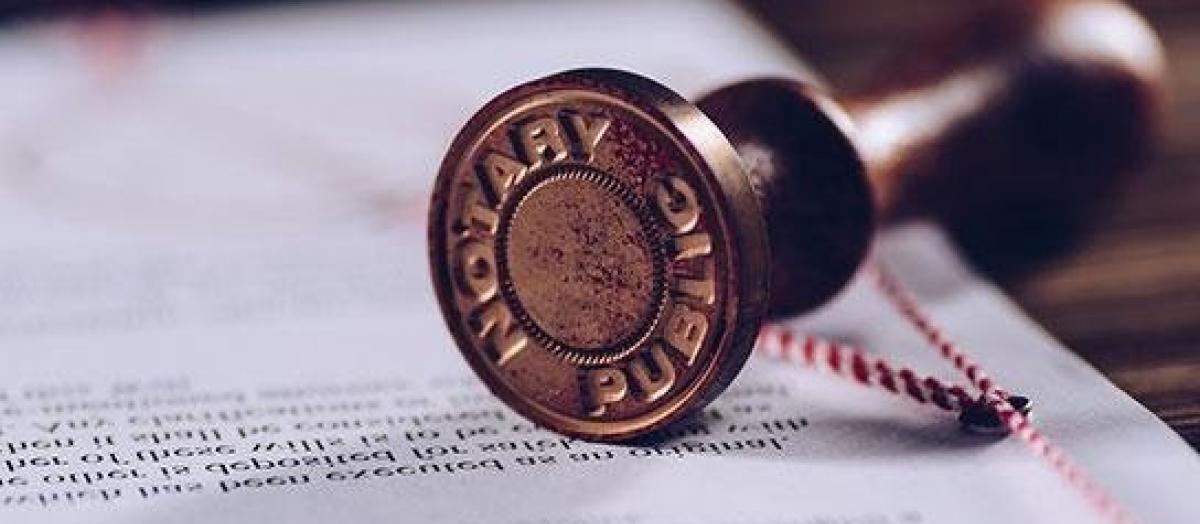Comprehending Apostille: Simplifying International File Legalization
Comprehending Apostille: Simplifying International File Legalization
Blog Article
Debunking Notarial Job: Streamlining the Role and Relevance of Notaries
In the intricate web of legal paperwork and confirmation, notaries stand as columns of assurance and authenticity. Their duty, often shrouded in mystery for several, brings significant weight in making sure the validity and honesty of essential records. As guardians of validity and reality, notaries play a pivotal component in our society, yet their job is not constantly totally recognized. By untangling the complexities dropping and surrounding notarial practices light on the importance of their acts, a more clear understanding arises of the crucial role notaries play in maintaining the fabric of lawful and contractual arrangements.
The History of Notarial Work
Just how did notarial job develop with time to become an indispensable component of lawful and business transactions? The history of notarial job dates back to ancient worlds, where scribes played a critical function in taping vital info and validating files. As cultures proceeded, the need for an extra formalized system to ensure the validity of contracts emerged. This resulted in the advancement of notaries, people designated by the state to work as unbiased witnesses in lawful matters.
Throughout the Middle Ages, notaries obtained prominence in Europe, with their features expanding to include drafting legal papers, certifying signatures, and preserving records. The rise of global trade further stressed the significance of notarial operate in confirming agreements and arrangements throughout borders.
In the modern age, notaries remain to play an essential function in lawful and company deals by validating identifications, confirming the credibility of documents, and protecting against fraudulence. Their role in certifying the validity of agreements adds a layer of safety and security and depend on to the ever-evolving landscape of commerce and law.

Responsibilities and Responsibilities of Notaries
The historic development of notarial work from old worlds to the contemporary era has actually formed the unique responsibilities and duties that notaries maintain in legal and service purchases today. Notaries play an essential duty in verifying the credibility of files and the identification of signatories. One of their primary responsibilities is to witness the signing of essential files, such as deeds, wills, and contracts, to make certain that all parties are getting in right into contracts purposefully and voluntarily. Notaries likewise confirm that notaries are of sound mind and not under duress or threat.
Additionally, notaries are tasked with administering vows and affirmations, which are crucial in lawful process and the execution of sworn statements. They certify duplicates of original files, providing assurance to institutions that the duplicates hold true replicas of the originals. Notaries have to preserve precise records of all deals they manage to make certain transparency and responsibility. Overall, the obligations and responsibilities of notaries are crucial in securing the stability and validity of numerous papers and deals.
Notarial Certificates and Signatures
Exemplifying thorough interest to information, notarial certifications and signatures webpage act as essential components in confirming the authenticity of legal papers. Notarial certificates commonly include crucial info such as the date of notarization, the names of the signatories, a description of the document, and the notary's official seal. These certifications provide a clear document of the notarial act, making sure that the paper can be quickly determined and mapped back to the notary who oversaw the process.
Trademarks play a critical function in notarial job, as they represent the contract and approval of the events included. Notaries thoroughly witness the signing of records to confirm the identification of the notaries and validate that they are authorizing of their own cost-free will. By affixing their official seal and trademark to the record, notaries accredit that the necessary treatments have been complied with and that the paper is valid and enforceable.
Basically, notarial certificates and trademarks are the characteristic of authenticity in lawful transactions, offering assurance to all celebrations included that the informative post papers are genuine and binding.
Importance of Notarial Acts
Notarization Process Explained
The registration procedure usually starts with the private presenting the record to a notary public. Once the identity is verified, the notary makes sure that the individual authorizing the document does so willingly and without any type of threat.

Final Thought

Notarial certifications typically include critical details such as the day of registration, the names of the notaries, a description of the record, and the notary's official seal. These certifications supply a clear document of the notarial act, making certain that the document can be quickly determined and mapped back to the notary that oversaw the procedure.
By fastening their main seal and trademark to the record, notaries certify that the necessary procedures have actually been adhered to and that the record is enforceable and valid.
By confirming the identity of the signatures, confirming their willingness to get in right into the arrangement, and certifying the day and place of the finalizing, notaries play a crucial duty in promoting the legitimacy of lawful papers.After the paper is authorized, the notary will certainly fasten their official seal or stamp onto the paper.
Report this page